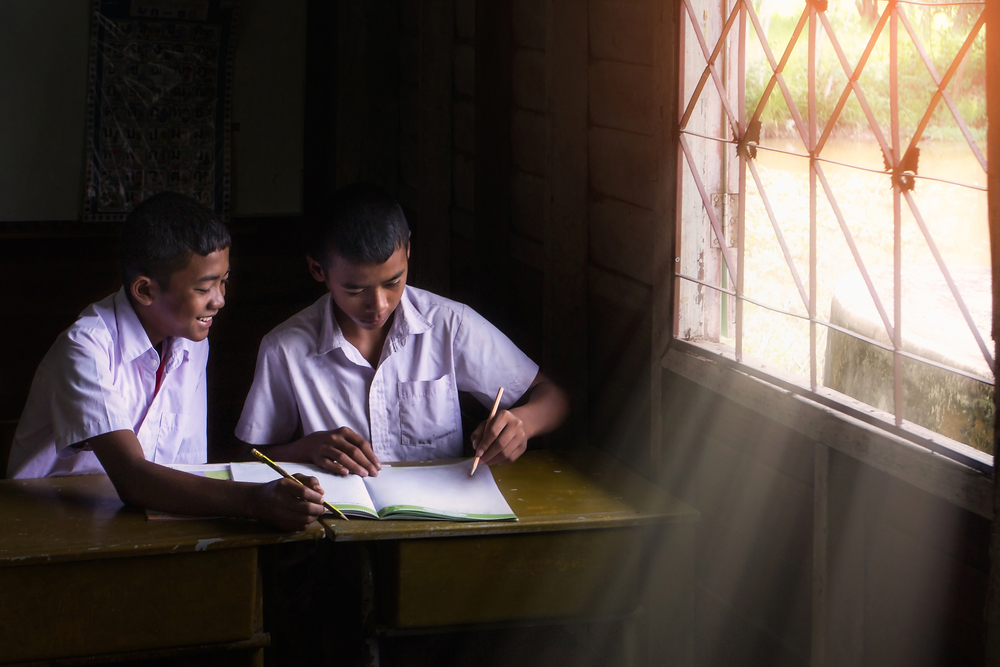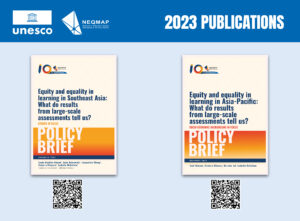Children and youth of today are faced with rapidly changing landscapes. As a result, education stakeholders find themselves debating what ‘skills’ our youth need for them to adapt to these changes. These skills are commonly known as ‘21st century skills’, and include frameworks such as OECD’s transferable skills, UNESCO’s transversal competencies, and UNICEF’s life skills. To better prepare its young Thai learners to meet the global challenges and the demands of the 21st Century, the Ministry of Education’s (MoE) Office of the Basic Education Commission (OBEC) has initiated a project called ‘Skills Framework Development for Basic Education’ in partnership with UNICEF and the Faculty of Education, Kasetsart University.
In Thailand, ‘Life skills’ have in fact long been introduced in the country’s core curriculum since 2001 as one of the key skills and competencies necessary for Thai learners to acquire along with the foundational skills. In 2008, the life skills have become more pronounced when OBEC in collaboration with UNICEF and Right to Play Thailand had developed ‘Life Skills Framework in Education, and later on ‘Life Skills: the 21st Century Teacher Manual in 2017.
In addition to the Life Skills Framework and the Teacher Manual, the Thai National Strategy (2018-2037) and the National Education Standards were developed in 2018 to serve as frameworks for the national education plan. These policies centred around the 5 core competencies of i) communication capacity, ii) thinking capacity, iii) problem-solving capacity, iv) capacity for applying life skills, and v) capacity for technological application.
The current skills framework project was initiated to strengthen all of these, and to put more emphasis in preparing learners with essentials skills and competencies that are relevant for today’s workforce. Based on surveys with teachers, learners and stakeholders, participatory workshops and policy reviews, the skills framework project found the need for Thai learners to strengthen thinking skills, including critical and creative thinking, and digital literacy skills. These skills share common traits of the other global 21st century skills frameworks with the emphasis on critical thinking, innovation, adaptability and digital skills.
The project has identified five components of essential skills that are vital for Thai learners’ today which include i) skills in future-oriented learning, such as decision-making and creative thinking skills, ii) skills in managing self, such social and emotional learning skills, iii) skills in living with others, such as communication and collaboration, iv) skills in creating a happy life, such as respect for diversity and resiliency, and v) skills in living with nature, such as sustainability and conservation skills. This draft skills framework is currently awaiting approval from the government.

Figure: Draft Skills Framework in Basic Education as of February 2020
The project is now developing tools for assessing these skills and competencies in line with the national competency-based curriculum, as well as examining and testing the tools on an e-platform for the digital learning of teachers. And prior to final roll-out, the project team will prepare a communication strategy to raise public awareness on the importance of these skills and competencies and ensure that all stakeholders are aware of the priorities for Thai learners.
To improve and strengthen the quality of education in Thailand, the skills framework project is reexamining today’s essential life skills to guide the direction for the national competency-based curriculum development. The long-term goal is to equip young Thai learners with skills that are more relevant and transformative so that they can become resilient to the 21st century demands, becoming active citizens to lead and contribute to the sustainable development of the country and the global community.
Written by: Thai Skills Framework Project Team
Associate Prof. Dr. Prompilai Buasuwan, Faculty of Education Kasetsart University [prompilai.b@ku.th]
Dr.Rangsun Wiboonuppatam, Education Officer, UNICEF Thailand
Dr.Saipan Sripongpankul, Education Specialist, Office of Basic Education Commission






